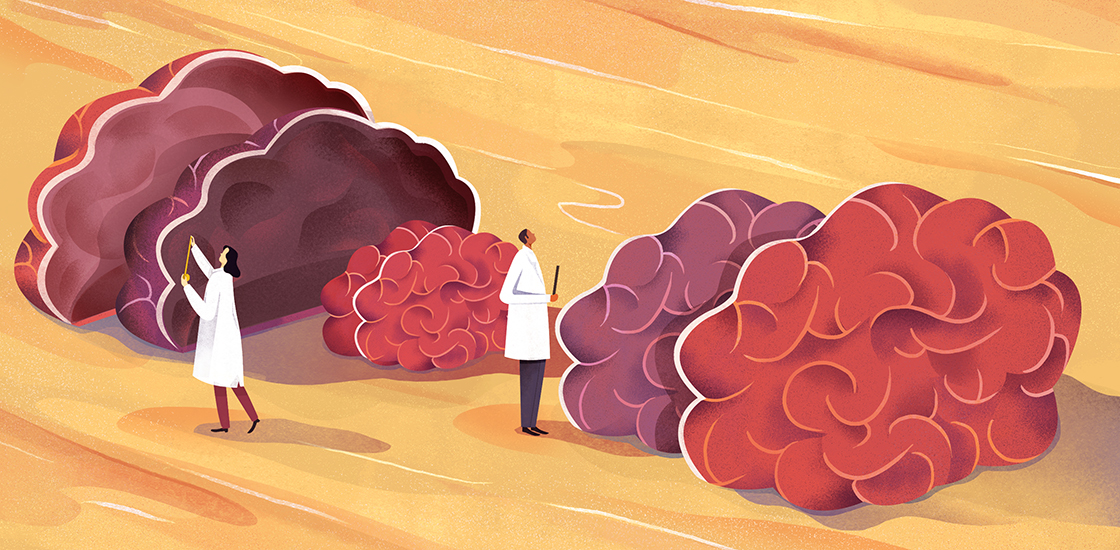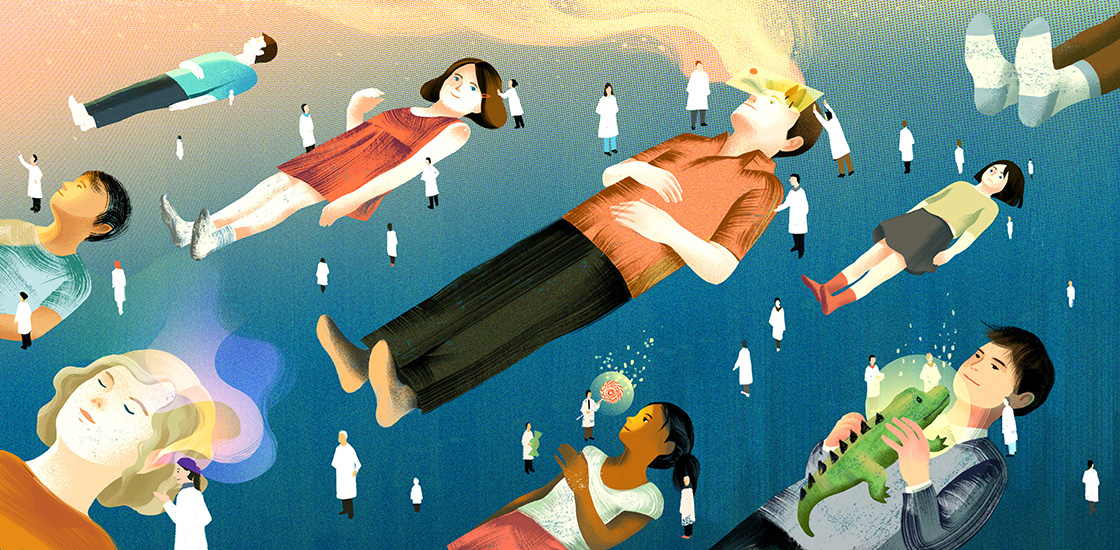Christine Wu Nordahl is professor of psychiatry and behavioral sciences at the University of California, Davis MIND Institute.

Christine Wu Nordahl
Assistant professor
University of California, Davis
From this contributor
Early brain enlargement augurs distinct form of autism
A minority of boys with autism have brains that are unusually large relative to their bodies — a trait tied to regression and intellectual disability.

Early brain enlargement augurs distinct form of autism
Questions for Nordahl, Mello: Scans for children with autism
Techniques used in behavioral interventions could help scientists scan the brains of children who have both autism and intellectual disability.

Questions for Nordahl, Mello: Scans for children with autism
Charting typical brain development
How can we characterize what is atypical when we don’t fully understand what typical brain development looks like, particularly under the age of 5? Christine Wu Nordahl explains the importance of scanning the brains of typically developing children.
Explore more from The Transmitter
New autism committee positions itself as science-backed alternative to government group
The Independent Autism Coordinating Committee plans to meet at the same time as the U.S. federal Interagency Autism Coordinating Committee later this month—and offer its own research agenda.

New autism committee positions itself as science-backed alternative to government group
The Independent Autism Coordinating Committee plans to meet at the same time as the U.S. federal Interagency Autism Coordinating Committee later this month—and offer its own research agenda.
Two neurobiologists win 2026 Brain Prize for discovering mechanics of touch
Research by Patrik Ernfors and David Ginty has delineated the diverse cell types of the somatosensory system and revealed how they detect and discriminate among different types of tactile information.

Two neurobiologists win 2026 Brain Prize for discovering mechanics of touch
Research by Patrik Ernfors and David Ginty has delineated the diverse cell types of the somatosensory system and revealed how they detect and discriminate among different types of tactile information.
Shifting neural code powers speech comprehension
Dynamic coding helps explain how the brain processes multiple features of speech—from the smallest units of sounds to full sentences—simultaneously.

Shifting neural code powers speech comprehension
Dynamic coding helps explain how the brain processes multiple features of speech—from the smallest units of sounds to full sentences—simultaneously.
